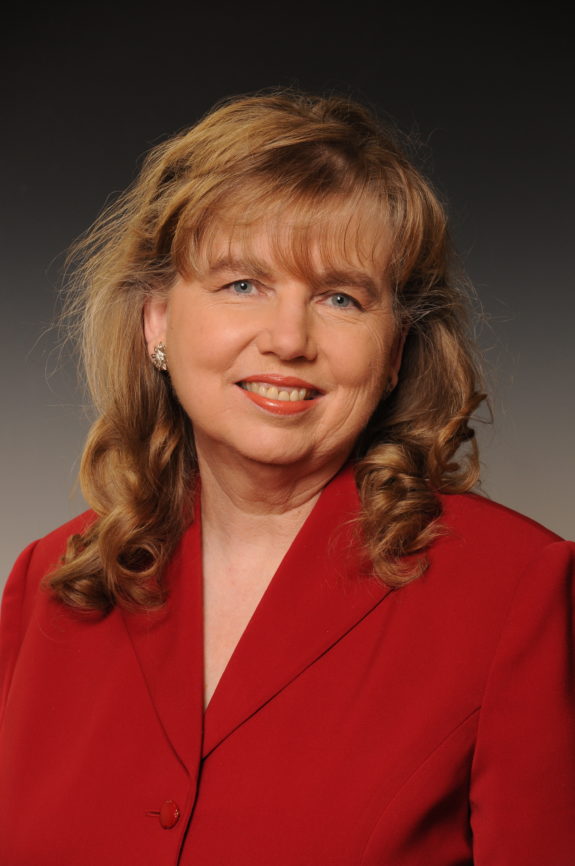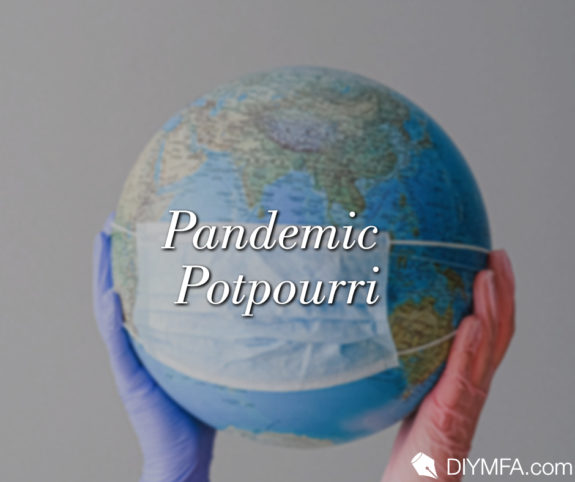It’s probably fair to say that the number of us actually living our 2020 plan is vanishingly small. It was to have been my year of geographical expansion – a self-organized book tour to signings and festivals around the country. What’s happened instead is a geographical contraction to the four walls of my house and curbside at my local grocery store. And, naturally, that’s forced me to think differently about a lot of things.
I saw an internet meme not long ago that went something like “2020 needs to decide if it’s being written by Stephen King or Michael Crichton.” To which any of us could probably add a list of other authors who’d have a field day with the events of this year. Those who write thrillers or mystery or espionage or suspense or even fantasy and dystopia can immediately spin yarns based on what’s happening around us.
Paying it forward
It will be 2070, however, before historical fiction authors can tackle the coronavirus pandemic (according to the conventional definition of the genre that events portrayed should have occurred fifty or more years in the past). By then, so much of what feels immediate and intense to us today will have been forgotten. Those future authors will have ample research sources for the data and the rhetoric and the overall impact on nation-states and broader societies. But what will they turn to for a deeper understanding of how individual people experienced this time?
In the past, men and women – both the powerful and the ordinary – wrote letters, kept journals, preserved family and household records and accounts, and generally documented their lives. Contemporaneous accounts are invaluable resources when an author is trying to create characters and their world with all the nuances that make it feel real to a reader.
I freely admit that I’ve never been much of a journal keeper. When travelling, I’m slightly better at it; but my attempts at creating a regular journal always seem to fizzle out after a few days. However, as I consider new ways to think about things, I wonder if we have an opportunity now, in 2020, to be of service to those future authors who will attempt to recreate the world of this latest plague. Perhaps we should make an effort to document not just what the experience has been, but how it’s affected our lives and how it’s made us feel.
Those things will differ by geography, by social strata, by age, by attitude – from one individual to another. But I can easily imagine future authors discovering such accounts and considering them a treasure trove.
Food for my thoughts, at least. Perhaps for yours.
Support in the present
As the pandemic continues, it’s a great time for us all to support our fellow authors, regardless of genre. But if you’re reading this column, you likely have an interest in historical fiction. There’s so much to choose from and new titles appearing regularly.
Special thanks to those authors who have already contributed their time to this column.
- Alison Weir’s newest volume, Katheryn Howard: The Tainted Queen, will be released on August 6.
- From Bernard Cornwell, the 13th volume in the Last Kingdom series, War Lord, makes its appearance in October in the UK and in November in the US. (I’ve also been binge-watching the TV adaptation on Netflix lately. Cornwell, himself, has a cameo role in the series – no spoilers here ?)
- Karen Brooks’s most recent work, The Darkest Shore, is now in its second printing and receiving excellent reviews. It’s in my TBR collection.
Some more titles that have recently come to my attention and been purchased for the TBR collection:
- The Dictionary of Lost Words, Pip Williams
- The Invention of Fire, Bruce Holsinger
- The Book of Lost Names, Kristin Harmel
- The Ragged Edge of Night, Olivia Hawker
Why not add your own favorites – or some titles you’re looking forward to reading – in the comments? (Just remember, this community is not about marketing our own work.) But we can share ideas to provide mutual support and to find delightful new stories to entertain ourselves as we social-distance.
Now there’s a thought . . . I wonder if “social distancing” will make it into the Oxford English Dictionary this year?

Pamela Taylor’s inspiration for her first book turned out to be that final straw that pushed her to leave the corporate world behind for the world of words and imagination. Now an author and an editor, she loves helping others polish their stories almost as much as she enjoys writing her own. She’s a member of the DFW Writers Workshop and the Editorial Freelancers Association and is in her fourth year on the judges panel for the Ink & Insights Contest. You can learn more about her books at secondsonchronicles.com, and about her editing services at editing4you.com.







